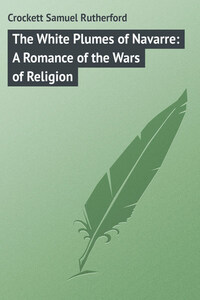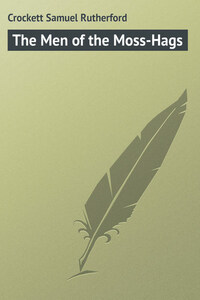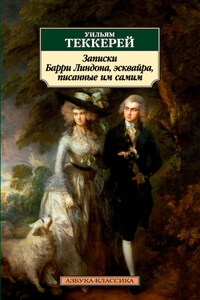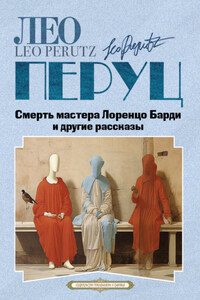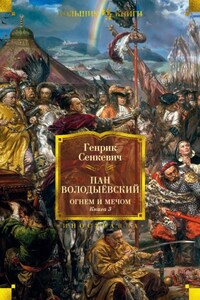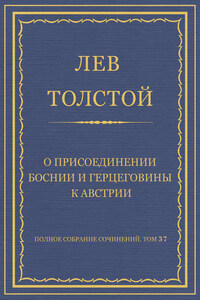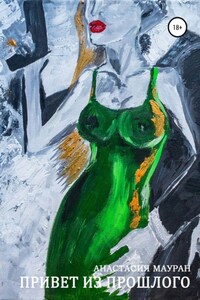CHAPTER I
THE MAKING OF AN OUTLAW
Ramon Garcia, called El Sarria, lay crouched like a wild beast. And he was a wild beast. Yet he smiled as he blinked into the midnoon heat, under his shaggy brows, from his den beneath the great rock of limestone that shadowed him.
El Sarria was hunted, and there was on his hands the blood of a man – to be more particular, on his left hand. For El Sarria had smitten hard and eager, so soon as he had seen Rafael de Flores – Rafael, the pretty boy, the cousin of his young wife, between whom and her relative there was at least cousinly affection. So the neighbours said, all but Manuela, the priest's housekeeper.
So Ramon smote and wiped his Manchegan knife on his vest, in the place under the flap at the left side where he had often wiped it before. He used the same gesture as when he killed a sheep.
In his cave of limestone Ramon was going over the scene in his own mind. That is why he licked his lips slowly and smiled. A tiger does that when after a full meal he moves the loose skin over his neck twitchy-ways and yawns with over-fed content. And Ramon, even though hunted, did the same.
When he married little Dolóres, Ramon Garcia had not dreamed that so many things would happen. He was a rich man as men go; had his house, his garden, his vines, a quintaine of olive-trees, was accounted quite a match by old Manuela, the village go-between, the priest's housekeeper, in whose hands were the hearts of many maids.
These things he, Don Ramon Garcia, had possessed (he was called Don then) and now – he had his knife and the long, well-balanced gun which was placed across the rests in the dryest part of the cavern.
He remembered the day well. He had been from home, down by Porta in the Cerdagne, to buy cattle, and returning home more swiftly than he had expected, his cattle following after in the herdsman's care, the thought of pretty Dolóres making his horse's feet go quicker, a song upon his lips, he had approached the village of Sarria de la Plana, and the home that was his own – and hers.
A swift-falling Spanish twilight it was, he remembered, the sky, broadly banded of orange and rose, was seen behind the highly piled houses. From the whiteness of the long frontage, dots and flecks flashed out. Black oblongs of glassless window-space splashed the white. Here and there a hint of vivid colour flung itself out almost defiantly – a woman's red petticoat drying on a cord, the green slats of a well-to-do window-blind. There came to the ears of Ramon Garcia the click of castanets from the semi-dark of wide-arched doors, and the soft tink-a-tank of lightly thrummed guitars. He saw a lover or two "eating iron," his hands clasping the bars behind which was the listening ear of his mistress.
And throughout this village were peace and well-accustomed pleasance. Ramon smiled. It was his home.
But not as he smiled up among the rocks of the Montblanch on the borderlands betwixt Aragon and Catalunia.
He smiled well-pleased and minded him upon the nights not so long gone by, when he too had "eaten iron," and clung a-tip-toe to the window-bars of little Dolóres, who lent him such a shy attention, scuttling off like a mouse at the least stirring within the house where all her kinsfolk slept.
There was none like her, his little Dolóres! God had given her to a rough old fellow like him, one who had endured the trampling of the threshing floor as the car oxen drave round.
Little Dolóres, how all the men had been wild to have her, but she had loved none but Ramon Garcia alone! So said Manuela Durio, the go-between, the priest's housekeeper, and if any did, she knew. Indeed, there was little told at confession that she did not know. Ramon smiled again, a wicked, knowing smile. For if Manuela owned the legitimate fifty years which qualified her for a place in the Presbytery of Sarria de la Plana, eyes and lips belied her official age. Anyway, she kept the priest's conscience – and – what was more important, she swore that little Dolóres loved Ramon Garcia and Ramon Garcia alone.
"Caballero! Don Ramon!"
He started. He had been thinking of the woman at that very moment, and there was her voice calling him. He turned about. The broad rose-glow had deepened to the smoky ruby of a Spanish gloaming, as it lingered along the western hill-tops. These last shone, in spite of the glowing darkness, with a limpid and translucent turquoise like that of the distant landscape in a Siennese picture.
"Don Ramon! wait – I would speak with you!"
It was indeed the priest's Manuela who called him, and though his heart hasted forward to Dolóres, and overleaped boundaries as a dog leaps a wall, still he could not refuse Manuela. Had she not brought them together at the first?
"Ah, Manuela, you are kind – there is good news up at the house, is there not? No ill has befallen the little one?"
"What has brought you home so soon?" cried the woman, a touch of impatient eagerness in her tones. "You will frighten Dolóres if you blunder it upon her all unshaven and travel-stained like that. Have you no more sense, when you know – ?"



